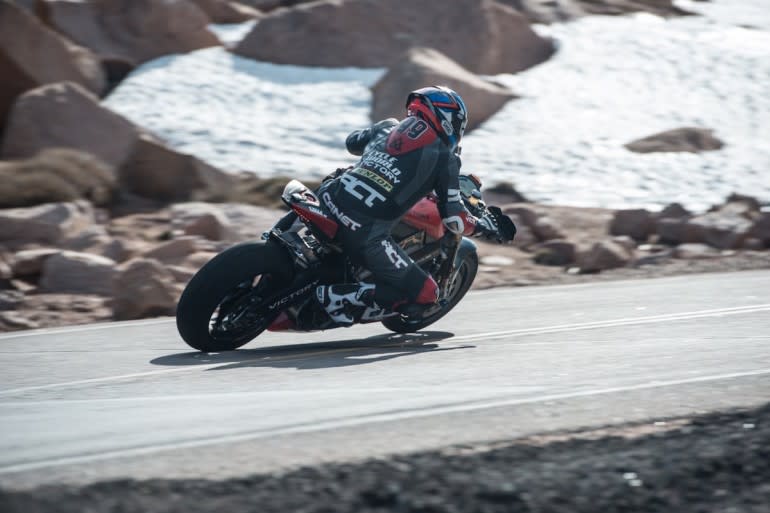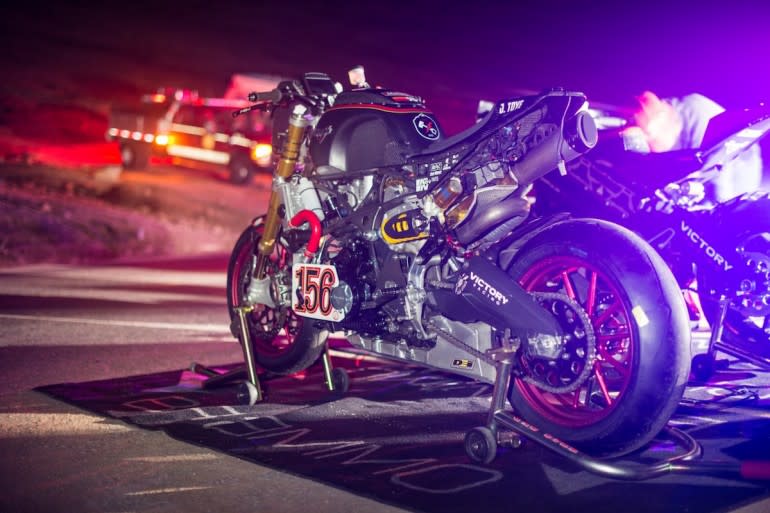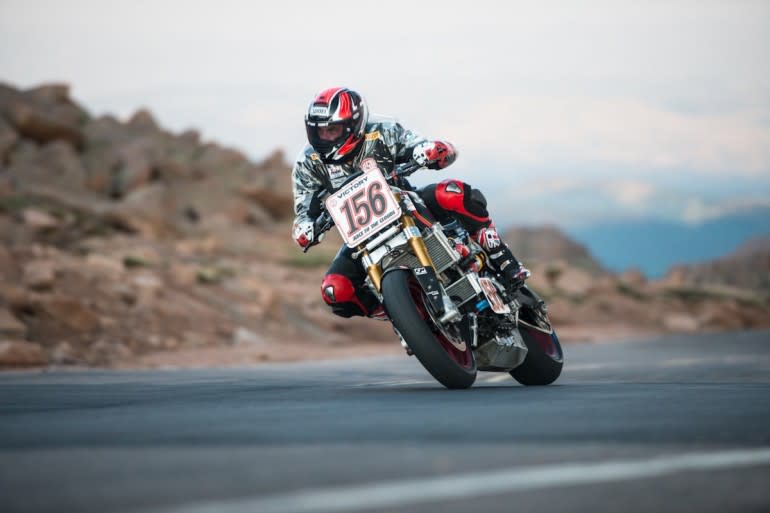Victory Sees Double Success at Pikes Peak
Victory Sees Double Success at Pikes Peak
Victory Motorcycles is celebrating after a successful weekend at the Pikes Peak International Hill Climb.
The U.S. brand ran two different motorcycles up the mountain this year: the electric Empulse RR and the gas-powered Project 156. Both bikes took first place in their respective divisions, and the Empulse RR came second among all motorcycles –– missing first by just seconds.

Cycle World Editor Don Canet was piloting the Empulse RR, a race-spec version of Victory’s Empulse TT motorcycle. He finished with a time of 10.17.813, placing him first in the PPC-Electric Bike category.
He was beaten out of the top slot for all motorcycles by veteran Pikes Peak racer Bruno Langlois, who managed to get his Kawasaki Z1000 up the mountain in 10:13.106. No doubt Canet will still be happy with the result, though, and will see it as a success that vanquishes the ghosts of last year’s DNF.

Canet had last year been the rider of the Project 156 bike, which uses a race-modified version of the liquid-cooled 1200cc V-twin that powers the Victory Octane. This year, Project 156 was ridden by former Pikes Peak champion Jeremy Toye. He, too, managed first place in his category (PPC-Exhibition Powersport) with a time of 10:19.777.
In the lead up to the event, Victory had dubbed its participation as a “Thunder vs. Lightning” match-up, with the boisterous Project 156 providing the “thunder” and the the electric-powered Empulse RR providing the “lightning.” In that particular battle, lightning was the winner, which may not have come as a surprise to many in the Victory team.

“The Empulse RR has a couple of things going for it that are going to make it hard to beat, owing to its all-electric powertrain,” said Brian Wismann, Victory Racing team manager, a few days before the race.
In particular, the Empulse RR had the advantage of not being affected by altitude. The PPIHC is run on a 12.42-mile course with 156 turns that begins at 9,390 feet and finishes at the 14,115-foot summit of Pikes Peak. As drivers/riders climb toward the summit, the thin air can rob internal combustion engines of 30 percent of their power.

 Yahoo Autos
Yahoo Autos 
